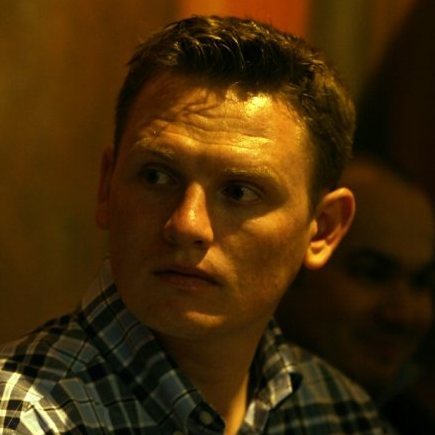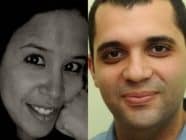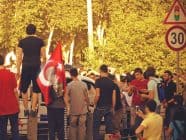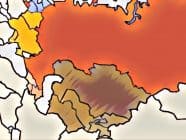This article has been updated. Details below.
Alexander Sodiqov a Tajik blogger at Global Voices and PhD candidate at the University of Toronto was detained in Tajikistan on June 16, in a case that raises issues of freedom of expression and of academic freedom in the former Soviet country.
Human Rights Watch reports that Sodiqov was arrested in the city of Khorog in the Gorno-Badakhshan region in southeastern Tajikistan and accused of espionage.
Alexander Sodiqov was conducting interviews as part of an academic research when he was detained. The Guardian reports that he has been “paraded … on television in an apparent attempt to discredit both him and an opposition politician.”
A communique by Badakhshan officials said Sodiqov was detained “during the execution of a special mission on behalf of a foreign country.”
The Tajik government has made little comments on this issue.
The city of Khorog where the disappearance took place is the capital of Gorno-Badakhshan Autonomous Province of Tajikistan. The mountain region along the Afghan border, Gorno-Badakhshan has long been practically outside the control of official Dushanbe. It has a porous border with Afghanistan, Kyrgyzstan, and China. The Tajik government has been notoriously hostile towards anyone trying to reveal the tension existing in the province, including complicated relations with ethnic minorities.
Tajikistan is ranked “not free” in Freedom House’s 2014 report on world freedom. Pressure on independent media strengthened in the past years and the government has banned social networks on several occasions, but Sodiqov’s arrest and disappearance, combined with accusations of espionage, appear to take state oppression to a new level.
The case has caused an international outcry. Edward Schatz, Sodiqov’s PhD supervisor at the University of Toronto, is quoted in TheStar.com saying that Alexander went to Tajikistan “to look into the causes and ways to prevent violence in Tajikistan.” John Heathershaw, Sodiqov’s research partner from the University of Exeter, confirmed that the purpose of their research is to resolve conflicts in Central Asia and that theirs “is one of many research projects funded by the British Economic and Social Research Council.”
As a part of his project “Rising Powers and Conflict Management in Central Asia” Sodiqov conducted an interview with civil society activist Alim Sherzamonov. Sherzamonov is one of the key figures in the oppositional Social-Democratic Party of Tajikistan in the Gorno-Badakhshan region and led anti-government protests earlier this year.
Sodiqov has not been heard from since he was arrested by the GKNB, Tajikistan’s secret service police and successor agency to the Soviet-era KGB. The independent agency ASIA-Plus reported on June 19 that a short video with the researcher was aired in the evening of June 18 on local TV in Khorog. In the clip, which appeared heavily edited according to anonymous local sources, Alexander appeared “pale, confused and, most likely, he was forced to say something.” The Guardian’s Chris Rickleton concludes that if anonymous accounts are true it is likely that Alexander Sodiqov is being used to discredit the oppositional leader Sherzamonov.
Both Freedom House and OSCE have expressed strong concern about Sodiqov’s disappearance. David Kramer, the president of Freedom House, said that unless the Tajik government released details of Sodiqov’s whereabouts and allowed him access to a lawyer, “this detention is looking more like a disappearance.”
OSCE Representative on Freedom of the Media Dunja Mijatović said it was worrying that “that neither his family nor his friends currently know where he is.” Mijatović called on Tajik government to immediately disclose all information about Sodiqov’s arrest and his whereabouts.
Steve Swerdlow, Central Asia researcher at Human Rights Watch, told The Guardian that Tajik authorities committed an enforced disappearance and therefore broke international law.
Sodiqov’s colleagues at the University of Toronto have set up a petition supporting him and verifying the authenticity of his academic research. Sodiqov’s friends and family have started another petition addressed directly to Saymumin Yatimov, head of GKNB.
On June 23, eight days after his detention, the GKNB pressed official charges against Sodikov and assigned him a lawyer.
This article was updated on June 24, 2014, to reflect that Sodiqov was assigned a lawyer after official charges were made.
Photo credit: Tony Fischer / Flickr Cc; Alexandr Sodikov / Twitter
Tags: academic freedom, Alexandr Sodikov, doctoral student, espionage, Exeter University, Freedom House, Freedom of Expression, Global Voices, Human Rights Watch, Tajikistan, University of Toronto














































